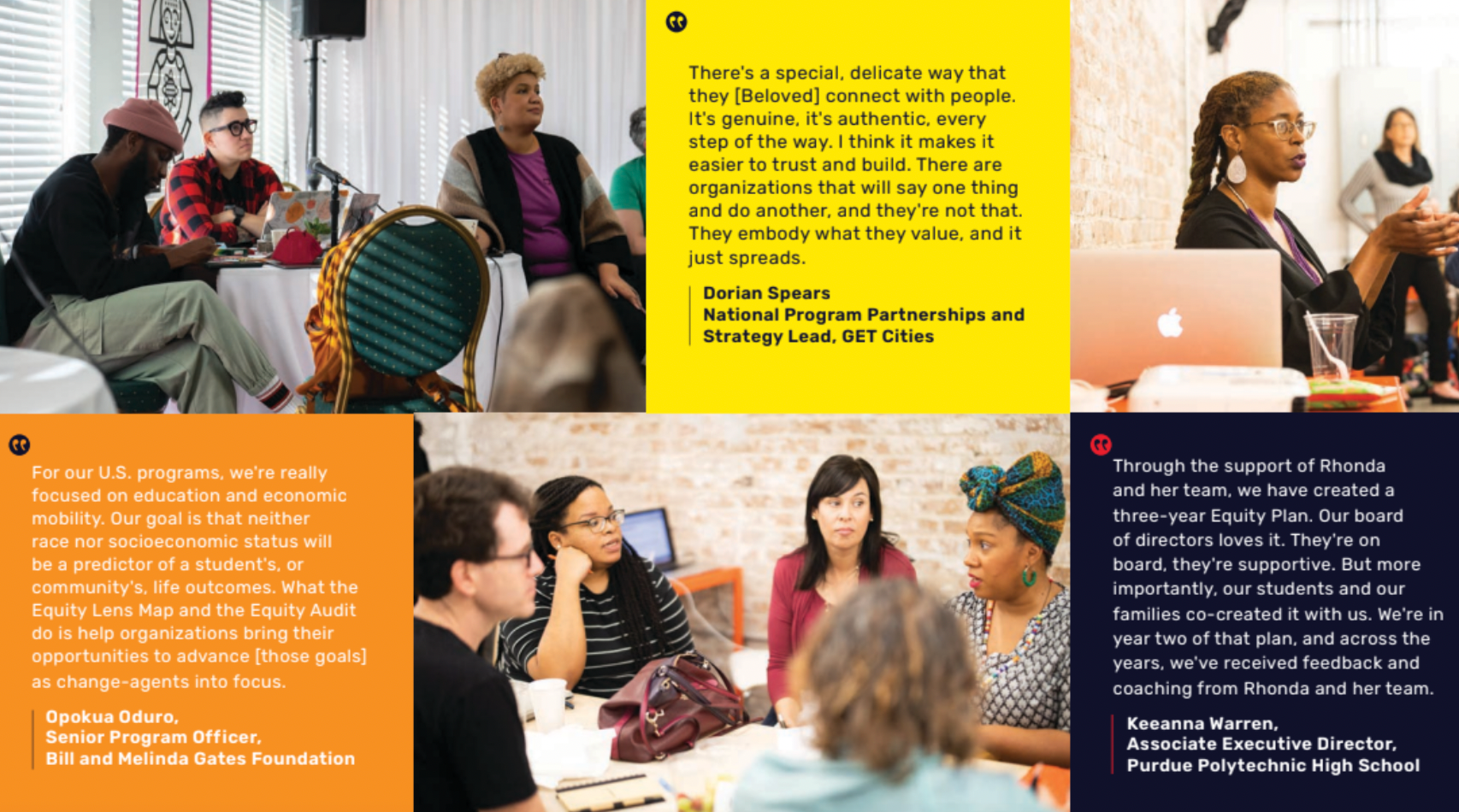Beloved Community is a movement:
Since starting with a single founder in 2017, Beloved Community has impacted over 500,000 students, families, and workers and sustained a multi-million dollar budget.
In our first 8 years, Beloved established effective building blocks for People, Place, and Power by working in collaboration with place-based organizations, facilitating communities of practice to improve leadership capacity, and launching a multi-prong approach to community-led research and policy advocacy.
Over the next few years, those of us who believe in justice are called to both stay focused and grounded as we work towards a bold vision for our collective future. That’s where Beloved Community is headed.
Our strategy refresh allows us to remain aware of the current political climate without being limited by it.
The next phase of our work, this new sun, is about supporting leaders across the MidWest and MidSouth towards their vision of a more just society.
We’re investing in people, place and power. Over the course of the next three years, we will advance:
Beloved New Orleans
Defining the tipping point for local sustainable change: What is required in education and workforce sectors together to reach critical mass and sustain it?
Good Jobs for All
Increasing the percentage of good jobs available for marginalized workers in local communities
Target Sectors: Clean Energy, Clean Water, Hospitality, Early Care Education
Regions: MO, KS, IN, TN, LA, TX, AR, OK, NM, and Tribal Nations
Center for Community Engaged Research
Positioning marginalized communities as authors of local research and policy
We will launch the Center with a regional fellowship to increase the community engaged research to policy talent pipeline, improve access to findings from community-engaged research, and develop novel quantitative measurement tools.
“The beloved community has always been an uncompromising, aspirational vision; a marathon whose starting line reaches back generations.”
— Rhonda Broussard
People change systems is more than a value at Beloved. This mantra reminds us that how we lead our work remains as important as what we lead. We remain committed to our core values and in this season, and are leaning even more into People Change Systems. Over the next three years that will look like:
Designing culturally responsive and relevant research, outreach, and relationship building strategies.
Centering communities in our target regions: the MidWest and MidSouth, specifically in LA, TX, AR, OK, NM, MO, IN, TN, and 66 related Tribal Nations.
Tracking and influencing local and state regulatory policies that advance economic equity for marginalized populations.
Strategically focusing on operational, impact, and public data to refine our strategies.
Changing the face of knowledge production and broadening access to community-engaged research findings.
Our theory of change remains the same. We develop the capacity of system leaders to make changes in real time that benefit youth, workers, and families. We train youth and adults in community-engaged research practices so that they can define local needs, drive the research, and leverage their findings for local policy advocacy. We convene leaders across the MidWest and MidSouth to learn from each other and advance collective strategies for sustainability.
“Now we ask ourselves – What are the next blocks that we need to build to deliver on the promise of the beloved community? That’s what this strategic plan is about. I look forward to talking with you more about where we’re headed and how we’ll get there together.”
Rhonda J. Broussard

How we get there, together.
We will require deep partnerships with leaders and communities who share our vision of a beloved community, and are committed to implementing sustainable cross-sector diversity and equity practices that result in economic equity for their regions.
We partnered with Integrated Impact Group for the development of this strategic plan. The IIG team collaborated across the Beloved organization to collect a range of data from inside the organization as well as from other organizations doing this work. The IIG team conducted interviews with 41 individuals, including staff, clients, funders, board members, and staff from other organizations doing work in the field.



